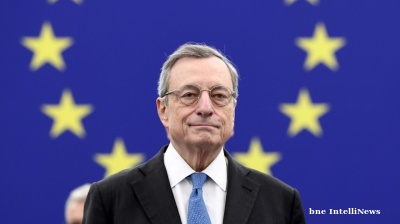Croatia is moving to curb the short-term rental market, a key driver of its booming tourism industry, in an effort to make housing more affordable for residents amid a surge in property prices and rent.
The government aims to prioritise residential space for housing over tourism. Deputy Prime Minister and Minister of Spatial Planning, Construction and State Property Branko Bacic said on August 26, according to a government statement.
The proposed legislation, which focuses on the management and maintenance of buildings, seeks to protect living spaces in multi-apartment buildings by limiting the scope of short-term rentals. "We want housing in Croatia to be exclusively used for housing," said Bacic after inspecting post-earthquake reconstruction sites in Zagreb.
Bacic stressed the need to establish a balance between tourism and the rights of apartment owners who do not engage in short-term rentals. "If we want quality sustainable tourism, then we have to establish a quality relationship between the co-owners of the building and the tourists," he said.
Under the new proposal, owners wishing to rent their apartments short-term would require the approval of 80% of the building’s co-owners. However, Bacic noted that the law would not be applied retroactively, ensuring that existing rental agreements would not be revoked.
Housing affordability crisis
The proposed changes come as Croatia grapples with soaring real estate prices and a shortage of long-term rental properties. With 10% of the country’s housing stock now dedicated to short-term rentals, Bacic warned that young people are facing increasingly high rent prices. The reduced supply of available housing has driven up both rent and property values across the country.
Rental prices have risen dramatically in recent years. According to Eurostat data, long-term rents in Croatia were 25% higher in July 2023 compared to 2015, with accelerated growth particularly evident since 2021.
Bacic announced that Croatia's first national housing strategy would be presented by the end of September, along with potential tax reforms aimed at incentivising long-term rentals. “Yes, we will introduce a real estate tax in a certain way,” Bacic said, adding that the tax would be a redefined version of the existing tax on vacation homes.
Far-reaching impact on urban areas
The new law has already sparked considerable debate, particularly around Article 31, which requires the consent of neighbouring apartment owners for short-term rentals.
Critics argue that the restrictions disproportionately target tourism rentals while exempting other commercial activities, such as renting apartments for dental offices or law firms.
Despite the controversy, Bacic defended the reforms, arguing that Croatia must address its housing crisis to protect urban areas from becoming unaffordable for residents.
“We want what was built for housing in Croatia to be for the purpose of housing,” he said, noting that some 115,000 residential units have already been converted into business premises, and 230,000 units are being used for tourism purposes.
The government expects the new law to take effect on January 1, 2025, after amending other related legislation. Through these reforms, the administration aims to reduce the prevalence of short-term rentals and stabilise housing prices, encouraging a shift towards long-term rentals.
Tourism vs. housing needs
Tourism remains a crucial pillar of Croatia’s economy, accounting for about 20% of GDP. However, the industry’s reliance on short-term rentals has exacerbated the housing crisis. Low property taxes and minimal inheritance levies have further incentivised investments in rental properties, exacerbating the shortage of affordable housing for locals.
The hike in the use of properties — including those in cities that are popular tourist destinations — for short-term rentals via AirBnb and other platforms is just part of the issue of over-tourism that Croatian officials are currently grappling with.
The popular destination of Dubrovnik has in particular struggled with ever-growing influxes of tourists. Dubrovnik has seen a significant spike in visitors in recent years, particularly after being featured as a key filming location for HBO’s Game of Thrones.
Holidu, a vacation rental platform, recently identified Dubrovnik as the most "over-touristed" city in Europe, surpassing even Venice.
A major contributor to Dubrovnik’s tourism surge is cruise ships, which flood the city with thousands of visitors daily. These cruise tourists, often in town for only a brief stopover, contribute to overcrowding in the city's historic streets and monuments while spending relatively little money.
Overall, the high numbers of tourists have strained local infrastructure, caused traffic congestion, and led to higher prices and a declining quality of life for residents.
In response to these challenges, Dubrovnik has introduced a range of measures aimed at managing tourist numbers. In 2017, under UNESCO's recommendation, the city installed daily caps on visitors to the Old Town. More recently, the city council voted to ban the issuance of new rental permits in the Old Town.
Features

Russian e-commerce giant Wildberries goes on a mysterious M&A spree
Russian e-commerce giant goes on M&A spree Almost a year after the controversial merger with a leading outdoor advertising firm, Russia’s leading e-commerce site Wildberries is indulging in a fresh bout of eyebrow raising deals.

US expands oil sanctions on Russia
US President Donald Trump imposed his first sanctions on Russia’s two largest oil companies on October 22, the state-owned Rosneft and the privately-owned Lukoil in the latest flip flop by the US president.

Draghi urges ‘pragmatic federalism’ as EU faces defeat in Ukraine and economic crises
The European Union must embrace “pragmatic federalism” to respond to mounting global and internal challenges, said former Italian prime minister Mario Draghi of Europe’s failure to face an accelerating slide into irrelevance.

US denies negotiating with China over Taiwan, as Beijing presses for reunification
Marco Rubio, the US Secretary of State, told reporters that the administration of Donald Trump is not contemplating any agreement that would compromise Taiwan’s status.




